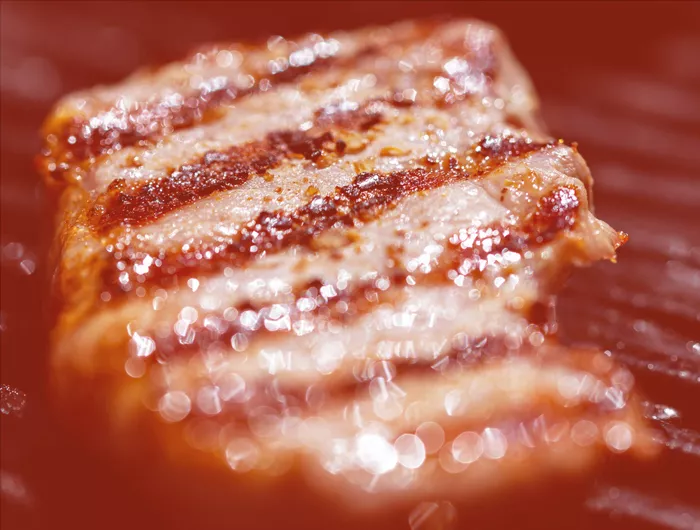Do real men eat meat? Or do we just think so?

Kai Reschke - pixabay.com.
Serving for serving, beef creates far more greenhouse gases than any other food. And processed meats like bacon, sausage, hot dogs, and cold cuts increase the risk of colorectal cancer. Yet Americans eat much more meat than most of the world. And American men eat far more meat than American women. No doubt, many men enjoy their burgers, bacon, steak, and ribs. But could some men also prefer red meat because it’s considered “manly”? Researchers decided to find out.
Hardee’s Monster Roast Beef is “like doing donuts in a hotrod while catching a game-winning Hail Mary,” says the 2019 TV ad featuring, well, a Monster-eating guy in a hotrod.
“You see advertisements with this portrayal that in order to be a man, you have to eat meat,” says Bret Leary, associate professor of marketing at the University of Nevada, Reno. “The ideal that real men eat meat is so rampant.”

Leary and his colleagues decided to find out why.
“We wanted to see if men who felt the stress of not living up to traditional masculinity ideals were more likely to eat meat to augment their masculine identity,” he explains.
Leary’s team conducted three online studies on some 200 to 400 U.S. and British men (average age: 32). For each study, the men completed a questionnaire to measure “masculinity stress” by agreeing or disagreeing with statements like “I wish I was more ‘manly’” or “I worry that women find me less attractive because I’m not as macho as other guys.”
The first study
After viewing an ad for The Butcher Box, a fictitious meat home-delivery service, the men were asked, “How inclined are you to purchase a meat box containing 8 prime cut steaks, 24 sausages and 6 lbs. of lean ground beef?
“Men who were experiencing masculinity stress were more willing to buy the box,” says Leary.
The second study

Before being asked about the Butcher Box, some of the men were shown a fictional industry Monthly Report with the headline “Red Meat’s Resurgence: Men Can’t Get Enough.” Others saw the same report, but the headline ended with “Women Can’t Get Enough.”
“When meat consumption was associated with femininity, men who were experiencing masculinity stress were not willing to pay as much for the meat,” says Leary.
The third study
First the men filled out a survey, agreeing or disagreeing with statements like “I have guns” and “I have thrown knives, axes, or other sharp things.” Then they were randomly sent feedback saying either “our algorithm indicates you are less masculine than 85% of the population” or “our algorithm indicates you are more masculine than 85% of the population.” (The men were later told that the feedback was a fiction.)
“We wanted to activate this stress of ‘I’m not man enough, and how am I going to compensate?’” says Leary. Next, in an ostensibly unrelated study, the men were asked to choose one of four items from a menu: a meatball sub, a bacon and egg sandwich, a grilled chicken salad, or a tofu salad.
Sure enough, “those who received the feedback that said they were less masculine were more likely to choose either the meatball sub or the bacon sandwich than those who received the opposite feedback,” says Leary.
“When men received affirmation of their masculinity, there was no need to augment their masculine identity by eating more red meat.”
Hmm. Maybe real men don’t need to eat meat to prove anything.
Tags
Topics

Let's stay in touch
Get our (free) healthy tips
Our free Healthy Tips newsletter offers a peek at what Nutrition Action subscribers get—scrupulously researched advice about food of all kinds, staying healthy with diet and exercise, and more.

